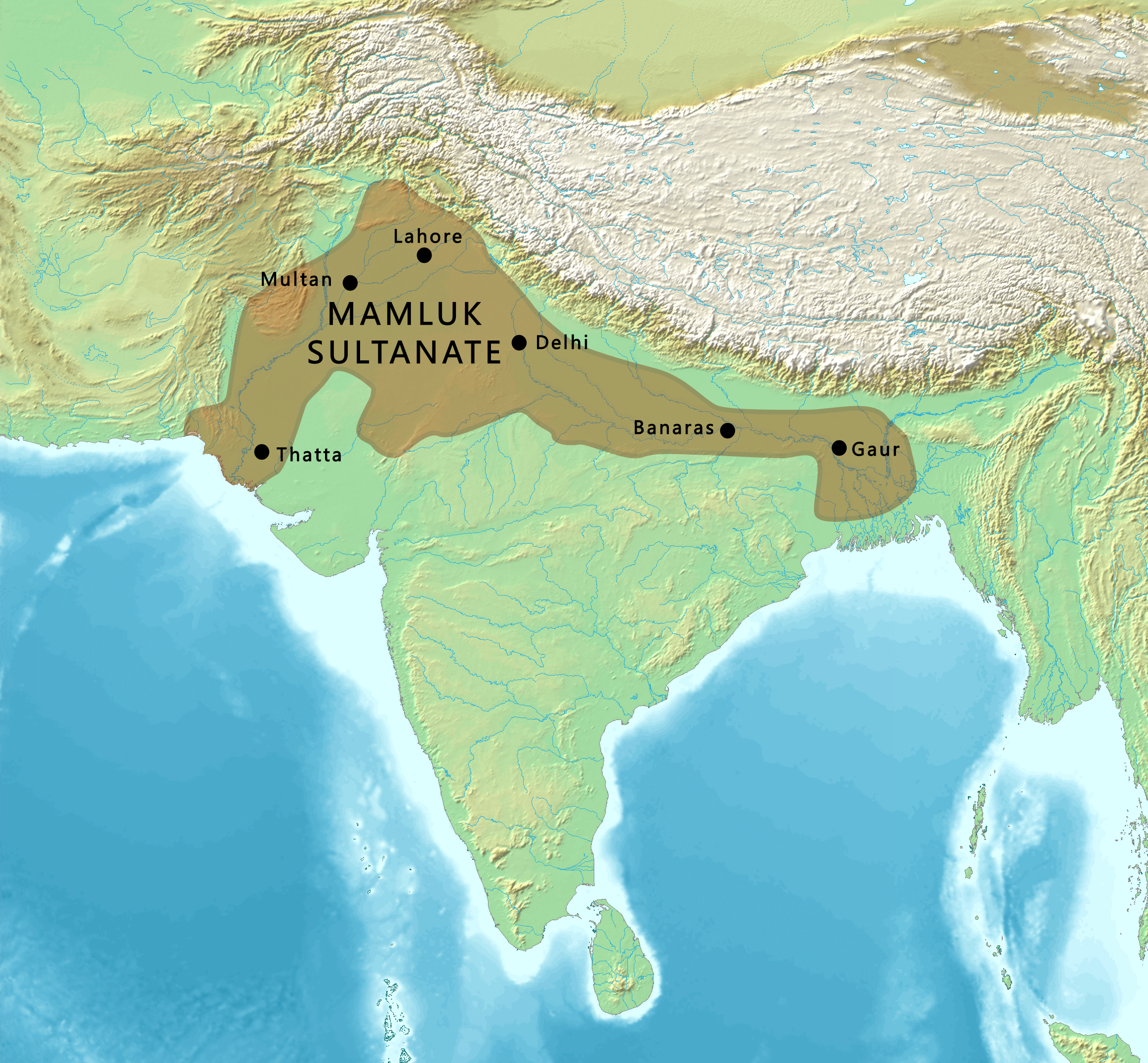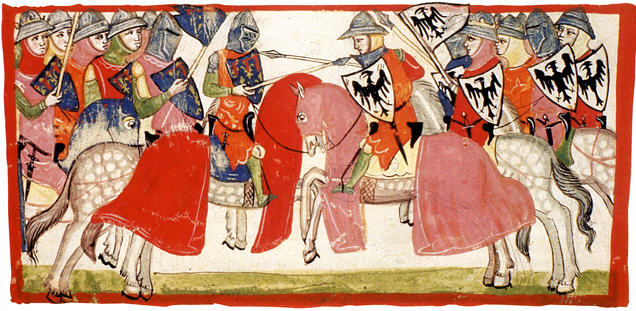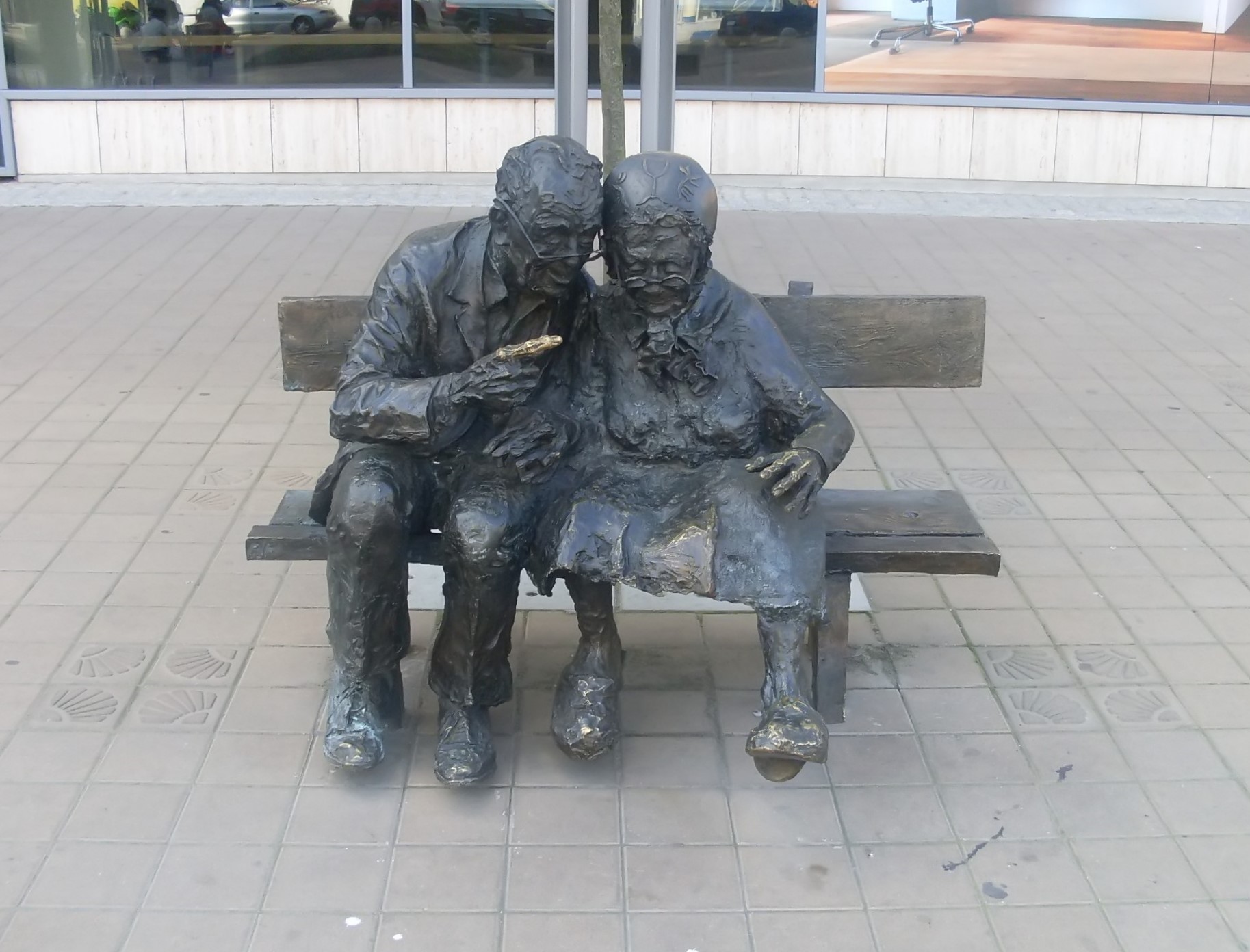|
Mahmud I Of Delhi
Nasir ud din Mahmud Shah (; 1229/1230 – 19 November 1266, reigned: 1246–1265) also known as Mahmud I, was the eighth Sultan of Delhi. The Tabaqat-i Nasiri, written by the court historian Minhaj-i-Siraj, is dedicated to him. His father-in-law Ghiyas ud din Balban handled the state affairs during his reign. Early life '' Tabaqat-i Nasiri'', written by the Sultan's court historian Minhaj-i-Siraj, calls him a son (''ibn'') of Iltutmish. According to Minhaj's account, Nasiruddin was born in the year of 626 Hijri (1229-1230 CE), in Delhi's Kasr-Bagh (the Garden Castle). His mother was a concubine ( who later, during his son's reign, was given the title of Malikah-i-Jahan). He was born sometime after the untimely death of Iltutmish's eldest son and heir apparent Nasir-ud-din Mahmud Shah. Iltutmish named the child after the deceased prince, and sent him and his mother to live in a palace in the Loni (or Luni) village. Isami and Firishta describe the Sultan as a grandson of Il ... [...More Info...] [...Related Items...] OR: [Wikipedia] [Google] [Baidu] |
Delhi Sultanate
The Delhi Sultanate or the Sultanate of Delhi was a Medieval India, late medieval empire primarily based in Delhi that stretched over large parts of the Indian subcontinent for more than three centuries.Delhi Sultanate Encyclopædia Britannica The sultanate was established around in the former Ghurid Empire, Ghurid territories in India. The sultanate's history is generally divided into five periods: Mamluk dynasty (Delhi), Mamluk (1206–1290), Khalji dynasty, Khalji (1290–1320), Tughlaq dynasty, Tughlaq (1320–1414), Sayyid dynasty, Sayyid (1414–1451), and Lodi dynasty, Lodi (1451–1526). It covered large swaths of territory in modern-day India, Pakistan, Bangladesh, as well as some parts of southern Nepal. The foundation of the Sultanate was established by the Ghurid conqueror Muhammad of Ghor, Muhammad ... [...More Info...] [...Related Items...] OR: [Wikipedia] [Google] [Baidu] |
Ala-ud-Din Masud Shah
Alauddin Masood Shah bin Rukhuddin Firuz Shah bin Shamsuddin Iltumish (; died 10 June 1246) was the seventh sultan of the Delhi Sultanate. Life Ala-ud-Din Masud-Shah ruled from 1242 to 1246. He was the grandson of Iltutmish and the son of Rukn-ud-Din Firuz Shah. In practice, the Turkish nobles known as the Forty held all real power, leaving Masud-Shah only the Sultan's title. A new Naib-i-Mamlikat post was revived and given to Malik Qutb-ud-din Hasan, while other top offices also went to members of the Forty. The Wazir, Muhazab-ud-Din, lost his position after clashing with these nobles, and Balban rose to become Amir-Hajib, eventually gathering most authority. Meanwhile, Tughra Khan, the Governor of Bengal, broke away, added Bihar to his domain, and even threatened Avadh. Multan and Uch also became independent. In 1245, Saif-ud-Din Hasan Qarlagh invaded Multan, but the Mongols arrived soon after, drove him out, and besieged Uch. When Sultan Mahmud advanced to the Beas Rive ... [...More Info...] [...Related Items...] OR: [Wikipedia] [Google] [Baidu] |
13th-century Births
The 13th century was the century which lasted from January 1, 1201 (represented by the Roman numerals MCCI) through December 31, 1300 (MCCC) in accordance with the Julian calendar. The Mongol Empire was founded by Genghis Khan, which stretched from Eastern Asia to Eastern Europe. The conquests of Hulagu Khan and other Mongol invasions changed the course of the Muslim world, most notably the Siege of Baghdad (1258) and the destruction of the House of Wisdom. Other Muslim powers such as the Mali Empire and Delhi Sultanate conquered large parts of West Africa and the Indian subcontinent, while Buddhism witnessed a decline through the conquest led by Bakhtiyar Khilji. The earliest Islamic states in Southeast Asia formed during this century, most notably Samudera Pasai. The Kingdoms of Sukhothai and Hanthawaddy would emerge and go on to dominate their surrounding territories. Europe entered the apex of the High Middle Ages, characterized by rapid legal, cultural, and religious ... [...More Info...] [...Related Items...] OR: [Wikipedia] [Google] [Baidu] |
1266 Deaths
Year 1266 (Roman numerals, MCCLXVI) was a common year starting on Friday of the Julian calendar. Events By place Europe * January 2 – Conquest of Murcia (1265–66), Siege of Murcia: King James I of Aragon ("the Conqueror") marches with his army from Orihuela and lays siege at Murcia on the Segura River. Skirmishes break out between the defenders and the Aragonese forces. The Muslim garrison, realizing that they are outnumbered and cut off from reinforcements, asks for terms. James offers to ask King Alfonso X of Castile ("the Wise") to restore the Murcians' legal rights (see 1244) from before the rebellion: self-government under Castilian suzerainty, freedom of worship, and preservation of lands and properties. They agree to this offer but request Alfonso's explicit agreement rather than just James' promise to ask him. James refuses to get Alfonso's agreement before the city surrenders. Finally, the Moors yield Murcia to James on January 31. Seeing his standard ... [...More Info...] [...Related Items...] OR: [Wikipedia] [Google] [Baidu] |
Sultans Of The Mamluk Dynasty (Delhi)
Sultan (; ', ) is a position with several historical meanings. Originally, it was an Arabic abstract noun meaning "strength", "authority", "rulership", derived from the verbal noun ', meaning "authority" or "power". Later, it came to be used as the title of certain rulers who claimed almost full sovereignty (i.e., not having dependence on any higher ruler) without claiming the overall caliphate, or to refer to a powerful governor of a province within the caliphate. The adjectival form of the word is "sultanic", and the state and territories ruled by a sultan, as well as his office, are referred to as a sultanate ( '. The term is distinct from king ( '), though both refer to a sovereign ruler. The use of "sultan" is restricted to Muslim countries, where the title carries religious significance, contrasting the more secular ''king'', which is used in both Muslim and non-Muslim countries. Brunei, Malaysia and Oman are the only sovereign states which retain the title "sultan" fo ... [...More Info...] [...Related Items...] OR: [Wikipedia] [Google] [Baidu] |
List Of Indian Monarchs
This article is a list of the various dynasties and monarchs that have ruled in the Indian subcontinent and it is one of several lists of incumbents. The earliest Indian rulers are known from epigraphical sources found in archeological inscriptions on Ashokan edicts written in Pali language and using brahmi script. They are also known from the literary sources like Sanskrit literature, Jain literature and Buddhist literature in context of literary sources. Archaeological sources include archeological remains in Indian subcontinent which give many details about earlier kingdoms, monarchs, and their interactions with each other. Early types of historic documentation include metal coins with an indication of the ruler, or at least the dynasty, at the time. These Punch-marked coins were issued around 600s BCE and are found in abundance from the Maurya Empire in 300s BCE. There are also stone inscriptions and documentary records from foreign cultures from around this time. ... [...More Info...] [...Related Items...] OR: [Wikipedia] [Google] [Baidu] |
Islamic History
The history of Islam is believed, by most historians, to have originated with Muhammad's mission in Mecca and Medina at the start of the 7th century CE, although Muslims regard this time as a return to the original faith passed down by the Abrahamic religions, Abrahamic Prophets of Islam, prophets, such as Adam in Islam, Adam, Noah in Islam, Noah, Abraham in Islam, Abraham, Moses in Islam, Moses, David in Islam, David, Solomon in Islam, Solomon, and Jesus in Islam, Jesus, with the submission () to the will of God in Islam, God. According to the Prophetic biography, traditional account, the Prophets and messengers in Islam, Islamic prophet Muhammad began receiving what Muslims consider to be divine revelations in 610 CE, calling for submission to the one God, preparation for the imminent Judgement Day in Islam, Last Judgement, and charity for the poor and needy. As Muhammad's message Timing of Sahabah becoming Muslims, began to attract followers (the ''ṣaḥāba'') he als ... [...More Info...] [...Related Items...] OR: [Wikipedia] [Google] [Baidu] |
History Of India
Anatomically modern humans first arrived on the Indian subcontinent between 73,000 and 55,000 years ago. The earliest known human remains in South Asia date to 30,000 years ago. Sedentism, Sedentariness began in South Asia around 7000 BCE; by 4500 BCE, settled life had spread, and gradually evolved into the Indus Valley Civilisation, one of three early Cradle of civilization, cradles of civilisation in the Old World, which flourished between 2500 BCE and 1900 BCE in present-day Pakistan and north-western India. Early in the second millennium BCE, 4.2 kiloyear event, persistent drought caused the population of the Indus Valley to scatter from large urban centres to villages. Rigvedic tribes, Indo-Aryan tribes moved into the Punjab from Central Asia in several Indo-Aryan migration theory, waves of migration. The Vedic Period of the Vedic people in northern India (1500–500 BCE) was marked by the composition of their extensive collections of hymns (Vedas). The social structure ... [...More Info...] [...Related Items...] OR: [Wikipedia] [Google] [Baidu] |
Mamluk Dynasty Of Delhi
The Mamluk dynasty (), or the Mamluk Sultanate, is the historiographical name or umbrella term used to refer to the three dynasties of Mamluk origin who ruled the Ghurid territories in India and subsequently, the Sultanate of Delhi, from 1206 to 1290Walsh, pp. 68-70Anzalone, p. 100 — the Qutbi dynasty (1206–1211), the first Ilbari or Shamsi dynasty (1211–1266) and the second Ilbari dynasty (1266–1290). Before the establishment of the Mamluk dynasty, Qutb al-Din Aibak's tenure as a Ghurid dynasty administrator lasted from 1192 to 1206, a period during which he led forays into the Gangetic plain and established control over some of the new areas. The last ruler, Shamsuddin Kayumars, an infant, was murdered by Jalal-ud-Din Khalji, a nobleman who then established the Khalji dynasty. History The Mamluk dynasty was founded by Qutb ud-Din Aibak, a Turkic Mamluk slave-general of the Ghurid Empire from Central Asia. Mamluks were soldiers of slave origins who had converted to ... [...More Info...] [...Related Items...] OR: [Wikipedia] [Google] [Baidu] |
Monogamy
Monogamy ( ) is a social relation, relationship of Dyad (sociology), two individuals in which they form a mutual and exclusive intimate Significant other, partnership. Having only one partner at any one time, whether for life or #Serial monogamy, serial monogamy, contrasts with various forms of non-monogamy (e.g., polygamy or polyamory). The term monogamy, derived from Greek language, Greek for “one marriage,” has multiple context-dependent meanings—genetic, sexual, social, and marital—each varying in interpretation across cultures and disciplines, making its definition complex and often debated. The term is typically used to describe the behavioral ecology and sexual selection of animal mating systems, referring to the state of having only one Mating, mate at any one given time. In a human cultural context, monogamy typically refers to the custom of two individuals, regardless of orientation, committing to a sexually exclusive relationship. Monogamy in humans varies wi ... [...More Info...] [...Related Items...] OR: [Wikipedia] [Google] [Baidu] |
Quran
The Quran, also Romanization, romanized Qur'an or Koran, is the central religious text of Islam, believed by Muslims to be a Waḥy, revelation directly from God in Islam, God (''Allah, Allāh''). It is organized in 114 chapters (, ) which consist of individual verses ('). Besides its religious significance, it is widely regarded as the finest work in Arabic literature, and has significantly influenced the Arabic, Arabic language. It is the object of a modern field of academic research known as Quranic studies. Muslims believe the Quran was orally revealed by God to the final Islamic Prophets and messengers in Islam, prophet Muhammad in Islam, Muhammad through the Angel#Islam, angel Gabriel#Islam, Gabriel incrementally over a period of some 23 years, beginning on the Night of Power, Laylat al-Qadr, when Muhammad was 40, and concluding in 632, the year of his death. Muslims regard the Quran as Muhammad's most important Islamic view of miracles, miracle, a proof of his prophet ... [...More Info...] [...Related Items...] OR: [Wikipedia] [Google] [Baidu] |
Namaz
''Salah'' (, also spelled ''salat'') is the practice of formal worship in Islam, consisting of a series of ritual prayers performed at prescribed times daily. These prayers, which consist of units known as ''rak'ah'', include a specific set of physical postures, recitation from the Quran, and prayers from the Sunnah, and are performed while facing the direction towards the Kaaba in Mecca (''qibla''). The number of ''rak'ah'' varies depending on the specific prayer. Variations in practice are observed among adherents of different '' madhahib'' (schools of Islamic jurisprudence). The term ''salah'' may denote worship in general or specifically refer to the obligatory prayers performed by Muslims five times daily, or, in some traditions, three times daily.Jafarli, Durdana. "The historical conditions for the emergence of the Quranist movement in Egypt in the 19th-20th centuries." МОВА І КУЛЬТУРА (2017): 91. The obligatory prayers play an integral role in the Islami ... [...More Info...] [...Related Items...] OR: [Wikipedia] [Google] [Baidu] |










